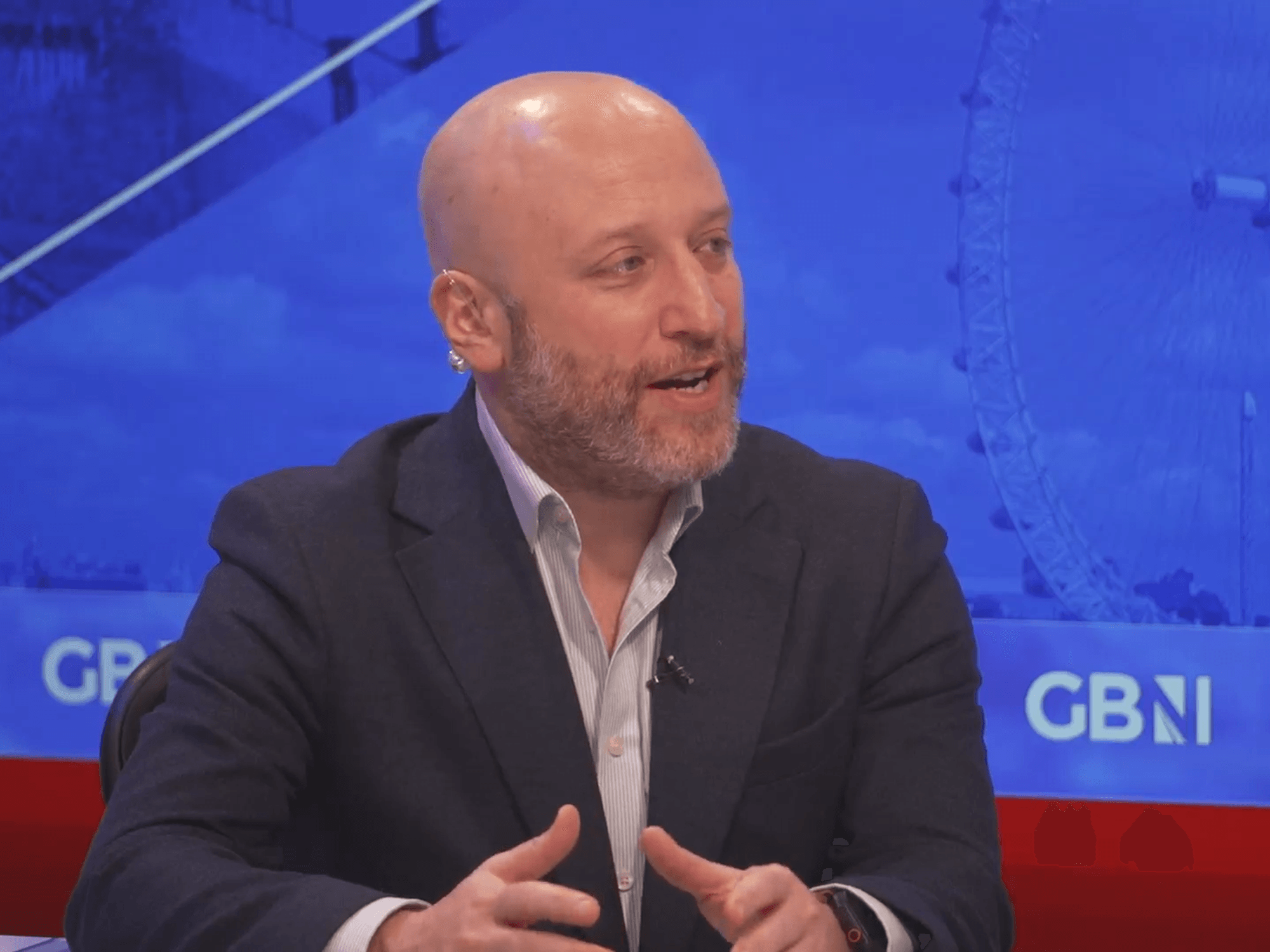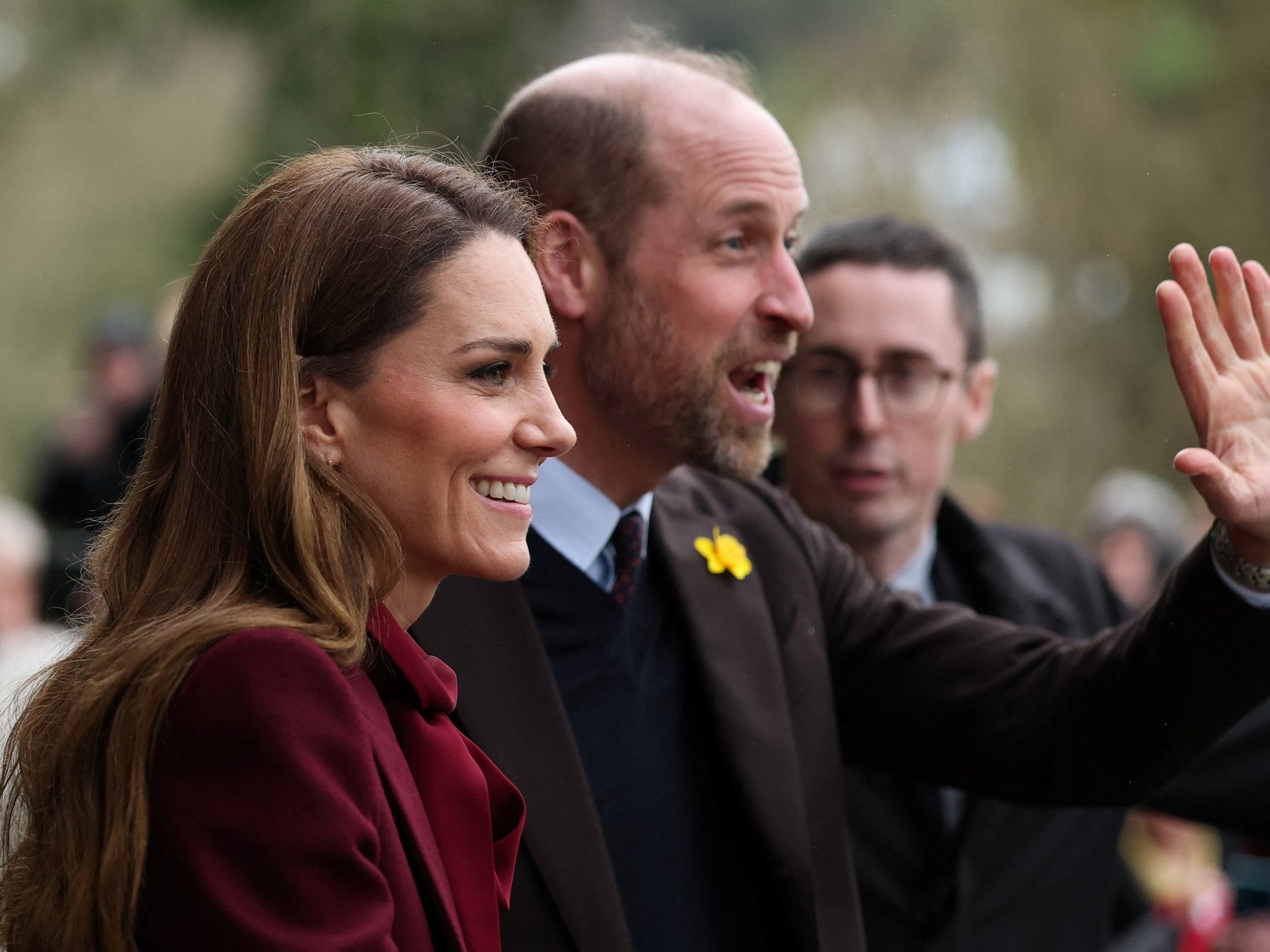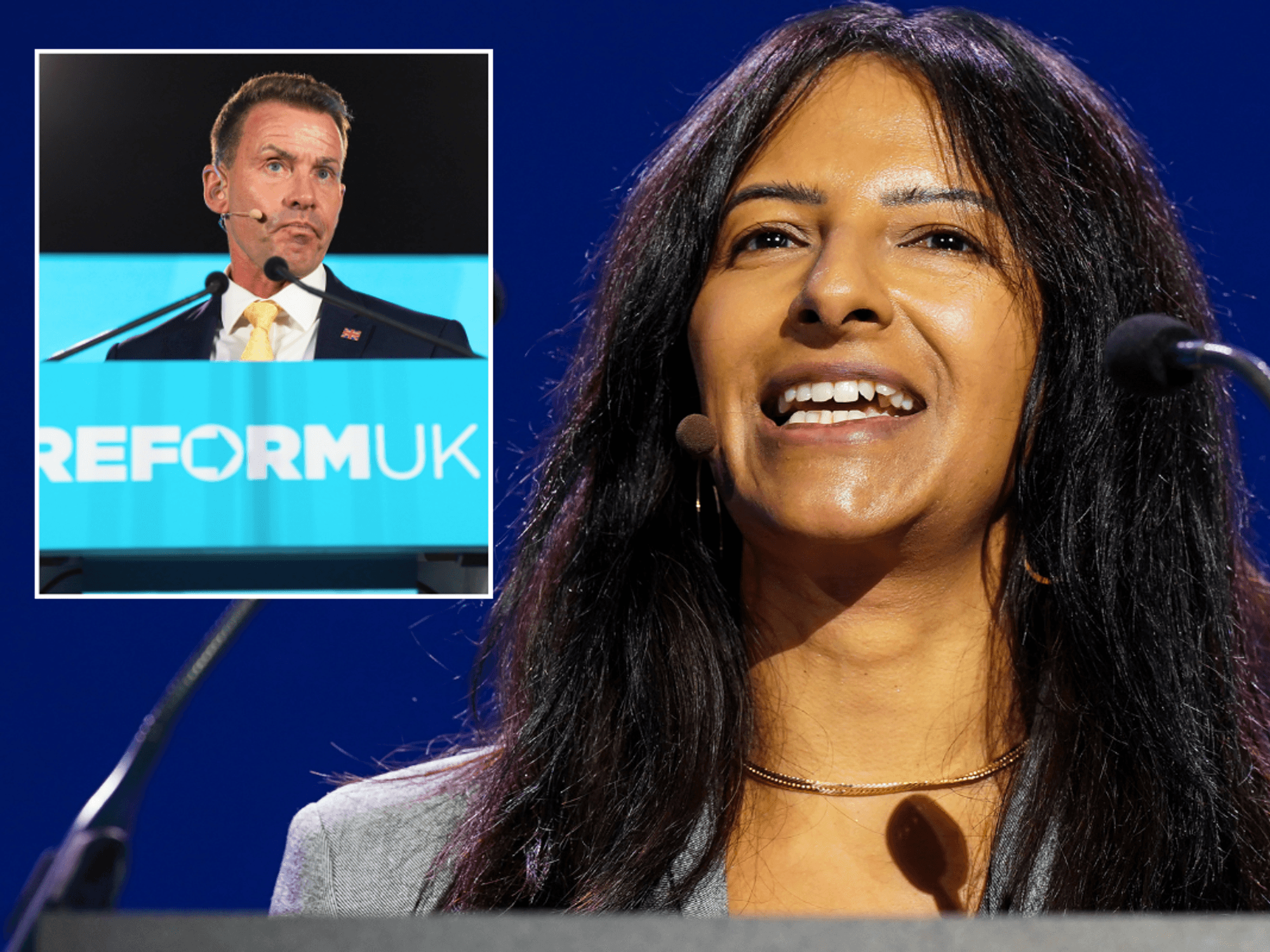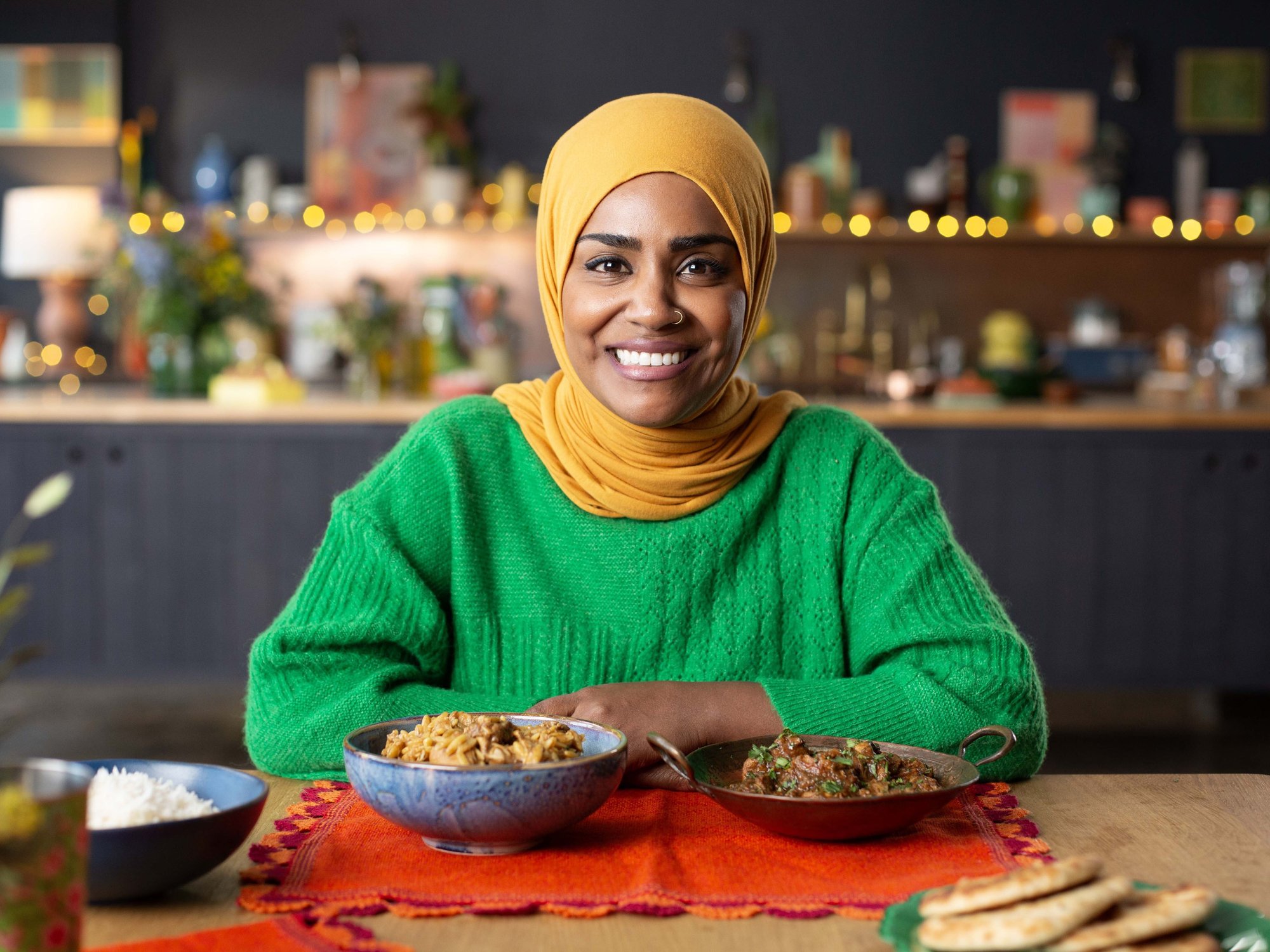'The Queen met Putin!' Nigel Farage name-drops late monarch as he's grilled on Russia links

'The Queen met Putin!' Nigel Farage blasts claims that Reform is pro-Putin as 'nonsense' |
GB NEWS

In 2014, the Reform leader said he admired Putin 'as an operator but not as a human being'
Don't Miss
Most Read
Nigel Farage has invoked the late Queen Elizabeth II as he rejected claims that Reform UK is “riddled with pro-Putin propaganda” in a heated Budget-day press conference.
Speaking after Rachel Reeves delivered her second Budget as Chancellor, the Reform UK leader was challenged over trust and Russia by GB News' Political Correspondent Katherine Forster, who cited both the scale of Labour’s tax rises and fresh allegations about Russian influence in his party.
Katherine said: “The Tories spent 14 years telling us they'd get net migration down and got up to nearly a million a year.
“Labour trailed about 8,500 as £8.5billion of tax rises before the election. We're now at what, £66billion plus?
TRENDING
Stories
Videos
Your Say
“Trust in politicians is very, very low. Why can people really believe that you will do things differently? Because you've already junked some of the pledges you made a year ago.
“And also the Prime Minister at PMQs today said Reform is riddled with pro-Putin propaganda. What's your response? Why don't you order an investigation, given what happened with Nathan Gill last week?”
Nigel replied: “Well, the Putin stuff's nonsense. Just because I said in 2013 that I admired him as a political operator, but didn't like him as a human being before the Ukrainian invasion, I'm a Putin supporter?
“By the way, the Queen met Putin after I'd said that. Whether she was a Putin sympathiser, perhaps you'd better ask the Prime Minister, I don't know.”
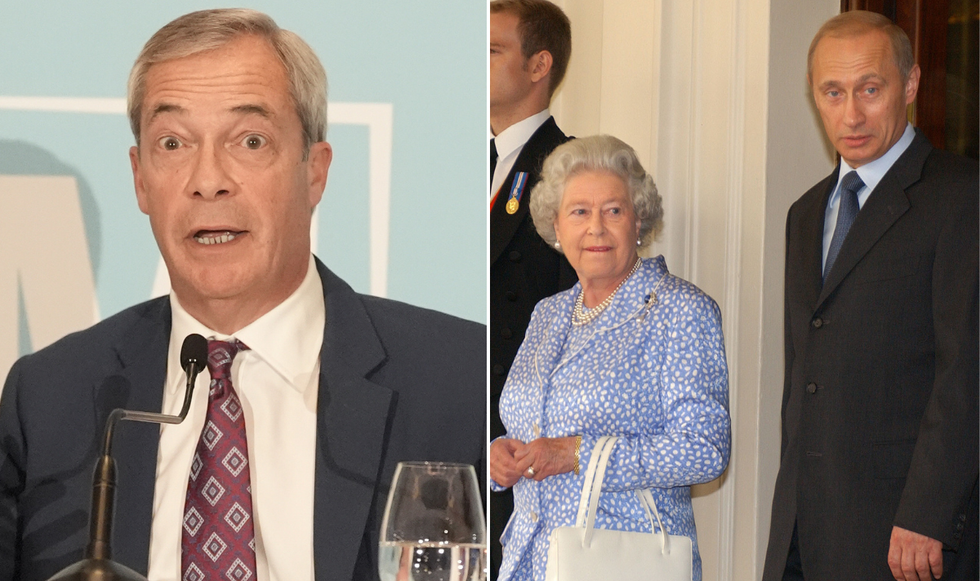
'The Queen met Putin!' Nigel Farage name-drops late monarch as he's grilled on Russia links
|PA
The remarks Nigel referenced were not made in 2013, but in 2014, when he told GQ that Vladimir Putin was the world leader he most admired “as an operator but not as a human being”.
Those comments have been frequently cited by political opponents in debates about Russia.
Regarding Queen Elizabeth II, the late monarch met President Putin on several occasions as part of her constitutional duties.
Their first meeting took place in 2000, when she granted him a private audience at Windsor Castle during his first visit to the West as Russia’s president.
LATEST ROYAL DEVELOPMENTS

Zia Yusuf and Nigel Farage holding a post-budget conference
|PA
She later hosted him during the 2003 state visit to the United Kingdom, where she formally welcomed him to Buckingham Palace and attended a state banquet in his honour.
They met again in France in 2014 at events marking the 70th anniversary of D-Day, months after Russia annexed Crimea.
All were official engagements carried out on the Government’s advice. There is no suggestion that these meetings reflected the late Queen’s personal views on Mr Putin or implied support for Russian policy.
At Prime Minister’s Questions earlier, Sir Keir Starmer intensified his attack on the Reform leader following the recent conviction of former Reform UK figure Nathan Gill.
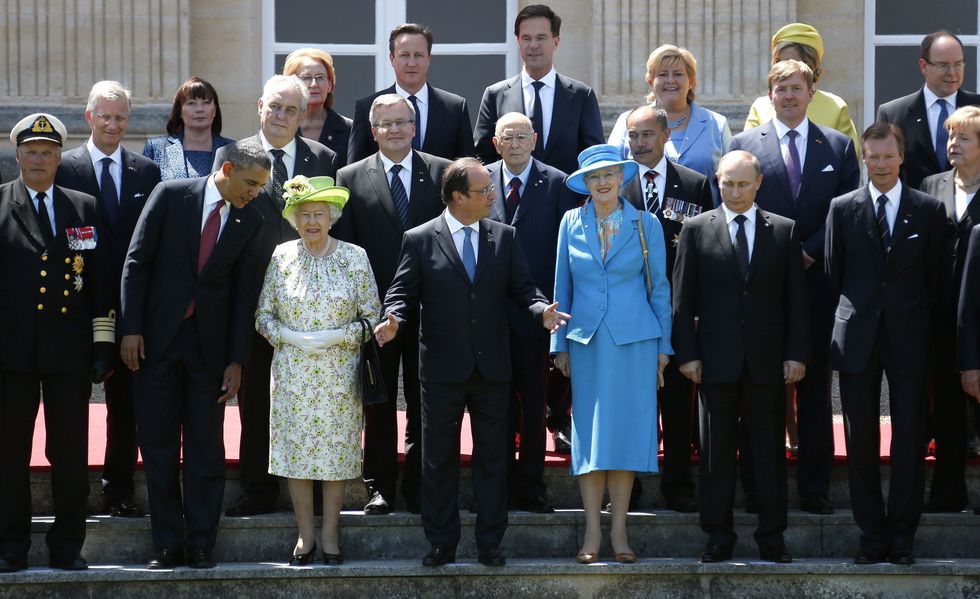
Queen Elizabeth (front row, third from left) and Putin (front row, second from right) pictured in a group in 2014 to mark 70th anniversary of the D-Day landings
|GETTY
The ex-MEP was jailed last week after admitting to taking payments from pro-Russian Ukrainian interests in exchange for pushing pro-Kremlin messaging.
The Prime Minister said the case showed Reform UK was “riddled with pro-Putin propaganda” and urged Nigel to order an internal investigation.
Reform UK has condemned Mr Gill’s behaviour as “reprehensible” and insisted he acted alone.
Nigel has repeatedly argued that his critics are distorting his record, saying he opposed the invasion of Ukraine and no longer views Mr Putin as anything other than a hostile authoritarian.
The exchange came after Ms Reeves unveiled her second Budget, confirming the scrapping of the two-child benefit cap, a new property surcharge on homes valued above two million pounds and further changes to tax thresholds and pension relief.
Independent analysis suggests the overall tax burden will continue to rise through the decade, prompting criticism across the political spectrum and leading Reform UK to accuse both Labour and the Conservatives of economic dishonesty.
Reform UK has positioned itself as the main voice of opposition to rising taxes and high migration.






